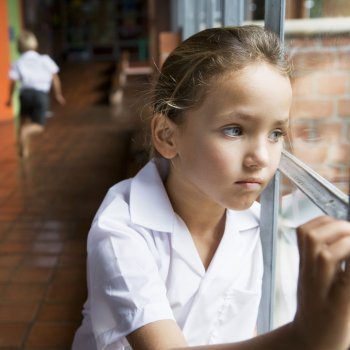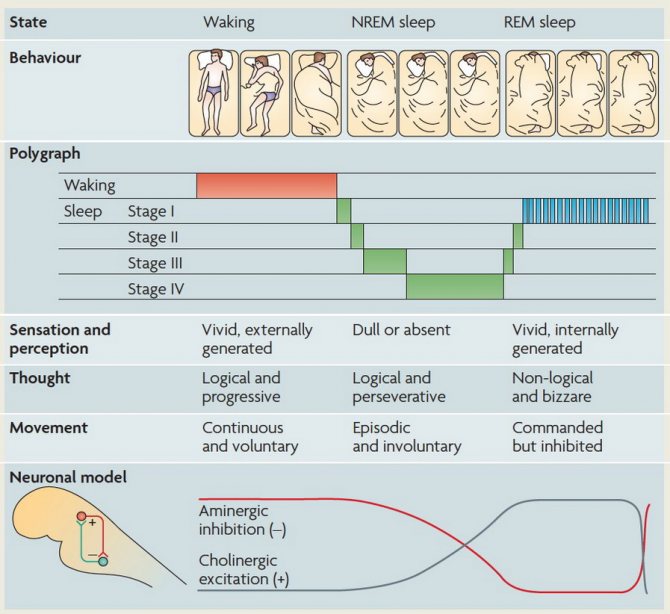Over sensitive child
9 signs you might be raising a highly sensitive child
Does your kid get overwhelmed by sights and sounds? Do seemingly small things, like sock seams or clothing tags, really bug them? You might have a highly sensitive child.
Photo: iStock/Anchiy
When you hear the phrase “highly sensitive” used to refer to a child, you might imagine a kid who cries at the slightest provocation. But parents of highly sensitive kids know that there is more to their children’s temperaments than big feelings. Highly sensitive kids have nervous systems that are highly aware and quick to react—and it is a temperament found in about 20 percent of children, according to psychologist Elaine Aron, the author of The Highly Sensitive Child.
Highly sensitive kids don’t necessarily have sensory processing disorder (SPD), however. The scientific term for it is sensory processing sensitivity, and it differs from SPD in that this low tolerance for distress is a personality trait or quirk, and not an actual dysfunction of the senses.
Here are nine signs your kid may be highly sensitive:
1. They have empathy to spare.Highly sensitive kids are not only emotionally reactive, but extremely empathetic. Seeing the people they love get upset can often trigger them to get upset, too.
2. Clothes are a literal pain.It’s not about preferring the Batman shirt to the Frozen tee—seams in socks and itchy tags can be impossible for a highly sensitive kid to handle due to their sensory processing sensitivity. Some parents, for example, may even special-order seamless socks online to cut down on daily getting-dressed battles.
3. They process things deeply.This can be seen in a kid’s probing, thoughtful questions, their precocious use of big words after only hearing them a few times, or a difficulty making decisions “because [they] are thinking of so many possibilities,” Aron writes.
4. Common discipline methods don’t work for them.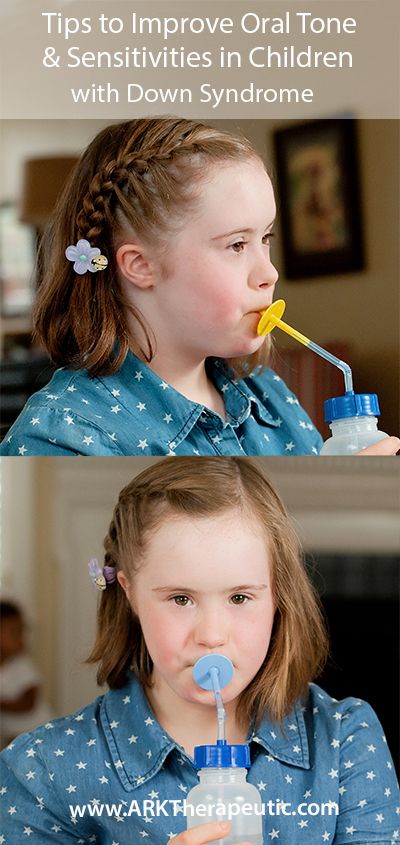
An isolating time out or a stern raised voice doesn’t work. Because of their super-powered perception and processing, highly sensitive kids need a gentler approach. “The highly sensitive child will internalize everything you say and amplify it,” says psychologist Jadzia Jagiellowicz, a temperament consultant at the Highly Sensitive Society. “You say something, and they hear it 10 times louder and as 10 times more of a threat.” Speaking calmly and matter of factly when disciplining—and ignoring minor infractions—will go a long way.
5. Sleep after an epic day is no easy feat.Sleep provides important downtime for sensitive kids, though due to their active minds and heightened awareness, getting them to sleep soundly—and consistently—can be a constant challenge. Drifting off quickly after an exciting day often feels impossible. A series of quiet, calming activities is a good way to reduce the intensity of stimuli and help a highly sensitive kid to wind down, Jagiellowicz says.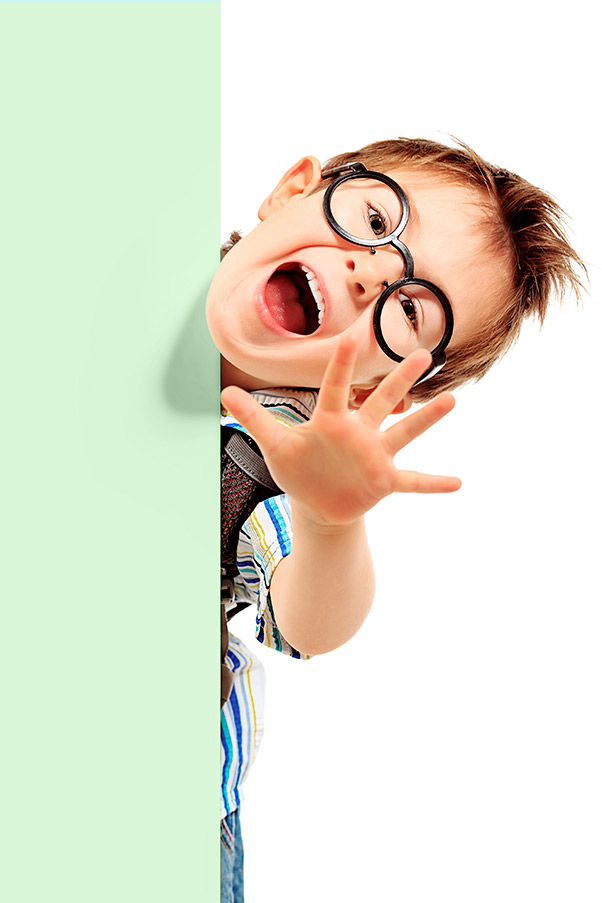
Highly sensitive kids can be hesitant with new people or experiences, and do best with big changes if they’re introduced gradually, Jagiellowicz says. Visiting the new classroom, teacher or coach before they start the new activity, if possible, prepares them by introducing them to what’s to come, and the preparation has the added bonus of keeping you calm, too.
7. Their senses seem super-powered.They can hear airplanes before anyone else, and smell the slightest odour that is nearly imperceptible to others. They are also quick to notice subtle changes in the appearance of people or places, like a piece of furniture that’s been moved. And though loud sounds can overwhelm anyone no matter their temperament, it can take a lot less than the loud wail of a siren to make a highly sensitive kid cover their ears. Common kid examples are public washroom hand dryers or the sound of a flushing toilet, but a highly sensitive kid might even dread the sound of a cardboard cereal box being opened, or react to someone’s squeaky bike passing by on the sidewalk.
A spare outfit is a must-pack item for your family. Wet and sandy clothes don’t last long on the bodies of kids with heightened awareness of subtle stimuli. Even the feeling of sand between their toes can be too much to handle.
9. Parenting them is a challenge, but also a gift.Parenting a highly sensitive kid can be a challenge—particularly for parents who aren’t highly sensitive themselves, or who wish their kid could be more flexible or adaptable. Jagiellowicz stresses that it’s important to be tolerant of your child’s sensitivities. Try not to take their reactions and behaviour personally, and focus on helping them through intense moments by reducing the amount of stimulation. By providing a stable, safe base for them to explore the world at their own speed—giving them “roots and wings,” as Jagiellowicz calls it—you can set them up for future success. And, as Aron writes, “What could we need more right now than people who think carefully, feel deeply, notice the subtle details, and end up having the big picture?”
Stay in touch
Subscribe to Today's Parent's daily newsletter for our best parenting news, tips, essays and recipes.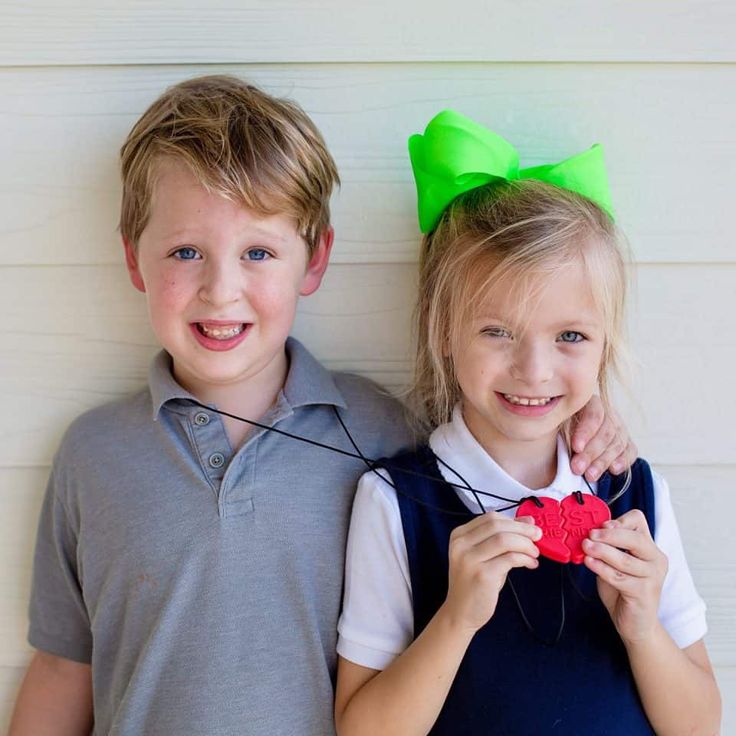
- Email*
- CAPTCHA
- Consent*
Yes, I would like to receive Today's Parent's newsletter. I understand I can unsubscribe at any time.**
FILED UNDER: Parenting Parenting styles Preschool behaviour Preschool development sensory sensory processing disorder service seo
The Highly Sensitive Child – The Highly Sensitive Person
A highly sensitive child is one of the fifteen to twenty percent of children born with a nervous system that is highly aware and quick to react to everything. This makes them quick to grasp subtle changes, prefer to reflect deeply before acting, and generally behave conscientiously. They are also easily overwhelmed by high levels of stimulation, sudden changes, and the emotional distress of others. Because children are a blend of a number of temperament traits, some HSCs are fairly difficult–active, emotionally intense, demanding, and persistent–while others are calm, turned inward, and almost too easy to raise except when they are expected to join a group of children they do not know. But outspoken and fussy or reserved and obedient, all HSCs are sensitive to their emotional and physical environment.
But outspoken and fussy or reserved and obedient, all HSCs are sensitive to their emotional and physical environment.
Is my child highly sensitive?
One way to know is to complete the online questionnaire ‘Is Your Child Highly Sensitive?‘, which also provides a good sense of what is meant by a “highly sensitive child.” The items come from a longer list given to over a hundred parents and then statistically selected to best identify HSCs. It is one way to know if a child is highly sensitive, but not always accurate for a given child. Another way to know is to read more about the trait and decide for yourself.
So, what now?
First, appreciate that this is a wonderful trait. It is no illness or syndrome. Nor is it something new I made up or “just discovered.” It is an inborn temperament or style that is found in about twenty percent of children and of nearly all animals. Anything so persistent is not abnormal. It represents a strategy of taking everything into account before acting (the other, more common innate strategy is to act quickly and be first, then think later).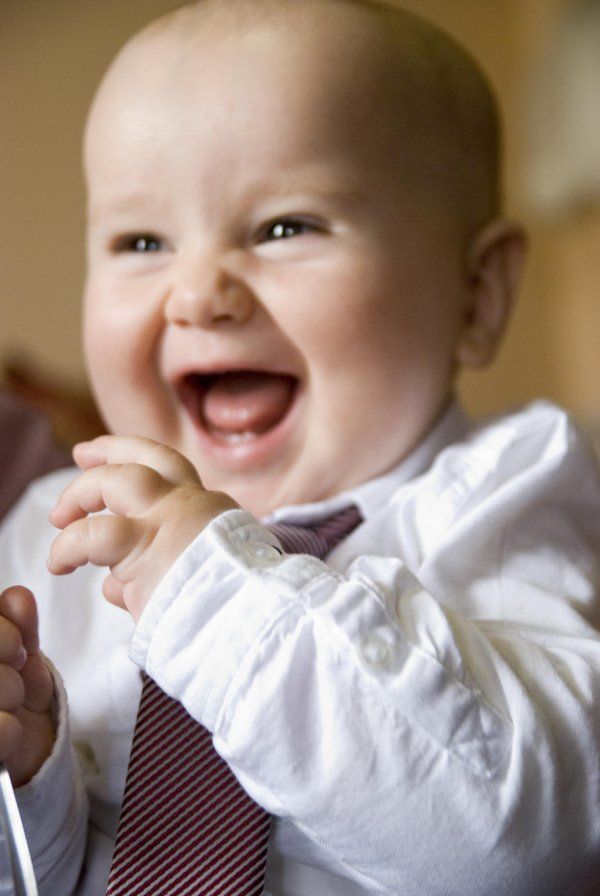 The trait serves an important purpose for the individual sensitive person and for the larger society–for example, sensitive persons sense danger and see the consequences of an action before others do.
The trait serves an important purpose for the individual sensitive person and for the larger society–for example, sensitive persons sense danger and see the consequences of an action before others do.
Unfortunately, the trait has been somewhat misunderstood in our culture, so that most psychologists and parents tend to see only one aspect of some sensitive children and call this trait shyness, inhibitedness, fearfulness, fussiness, or “hyper” sensitivity. If one could see inside the mind of a sensitive child, however, one would learn the whole story of what is going on–creativity, intuition, surprising wisdom, empathy for others…
But, for all of that to blossom, they absolutely must be raised with understanding. Otherwise, as adults they are prone to depression, anxiety, and shyness.
So, the second “what now” might be to read The Highly Sensitive Child. I wrote this book because so many adults were telling me that their childhoods were excruciatingly difficult, even when their parents had the best intentions, because no one knew how to raise them. Parents and teachers told them there were “too sensitive” or “too shy” or “too intense.” They tried to change and could not, and so felt increasingly isolated or ashamed. My hope is to spare some children such unnecessary suffering and the world the waste of so much talent, because HSCs have a tremendous amount to offer the world. But they do need special handling. They need to be appreciated, to have their special needs and sometimes intense reactions and behaviors understood, and, when correction is needed, they need to be handled with special care so that they do not become anxious or ashamed of their failure.
Parents and teachers told them there were “too sensitive” or “too shy” or “too intense.” They tried to change and could not, and so felt increasingly isolated or ashamed. My hope is to spare some children such unnecessary suffering and the world the waste of so much talent, because HSCs have a tremendous amount to offer the world. But they do need special handling. They need to be appreciated, to have their special needs and sometimes intense reactions and behaviors understood, and, when correction is needed, they need to be handled with special care so that they do not become anxious or ashamed of their failure.
This book is rooted in years of my experience as a psychotherapist and consultant to HSPs and parents of HSCs, plus interviews with parents, teachers, and HSCs themselves for the book. Then there are my experiences from my fumbling efforts to raise an HSC before I knew what that was. And there’s what I know from having been an HSC myself.
Again, few parents and teachers understand this trait-–and as a result, HSCs are often mislabeled as “problem children” (and in some cases, misdiagnosed with disorders such as Attention Deficit Disorder). But raised with proper understanding and care, HSCs are no more prone to problems than nonsensitive children and can grow up to be happy, healthy, unusually well-adjusted and creative adults.
But raised with proper understanding and care, HSCs are no more prone to problems than nonsensitive children and can grow up to be happy, healthy, unusually well-adjusted and creative adults.
Chapters in The Highly Sensitive Child:
- Sensitivity–
A Better Light on “Shy” and “Fussy” Children
Explains the trait thoroughly, including research evidence. - Fasten Your Seat Belts–
The Challenges of Raising an Exceptional Child
Describes the most likely problems and gets you started solving them. - When You the Parent Are Not Highly Sensitive–
Blessings in Disguise
Even though this is an innate trait, it often happens that a parent is not highly sensitive but the child is. This chapter shows you how to make that an advantage for both of you. - When You and Your Child Are Both Highly Sensitive–
And What About the Rest of Your Family’s Temperament?
Discusses the advantages and disadvantages of having the same temperament as your child and also considers the temperament of other family members.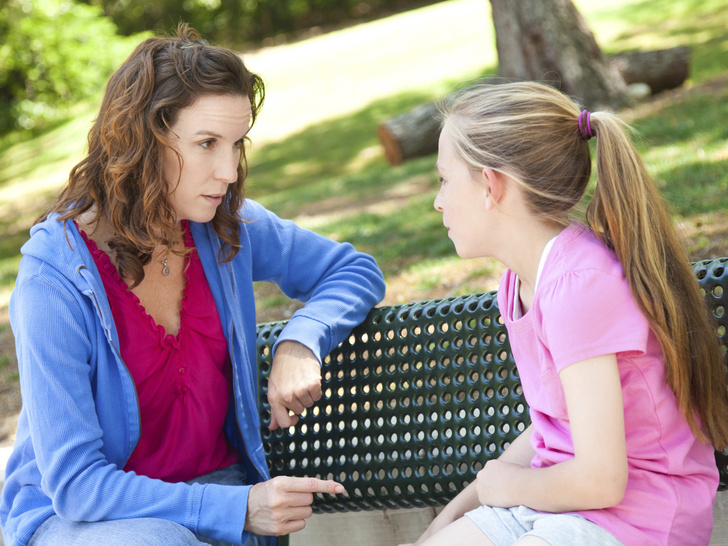
- Four Keys to Raising a Joyous HSC–
Self-Esteem, Shame-Reduction, Wise Discipline, and Knowing How to Discuss Sensitivity
Focusing on the most important issues, whatever the age of a child.
The rest of the book is on each stage of raising your sensitive child, with many practical tips as well as research findings on what really works with these particular children.
- Off to the Right Start–
Soothing and Attuning to Highly Sensitive Infants
Toddlers and Preschoolers at Home– - Adapting to Change and Dealing with Overstimulation
Toddlers and Preschoolers Out in the World–
Helping Them Feel Successful in New Situations - School-Age HSCs–
Resolving Problems at Home
School-Age HSCs– - Helping Your Child Enjoy the Classroom and Social Life
Sensitive Adolescents and Young Adults–
The Delicate Task of Launching a Spirited, Seaworthy Vessel - Tips for Teachers
To Parents of School-aged children: You can give this book to your child’s teacher, especially the last section, “Tips for Teachers.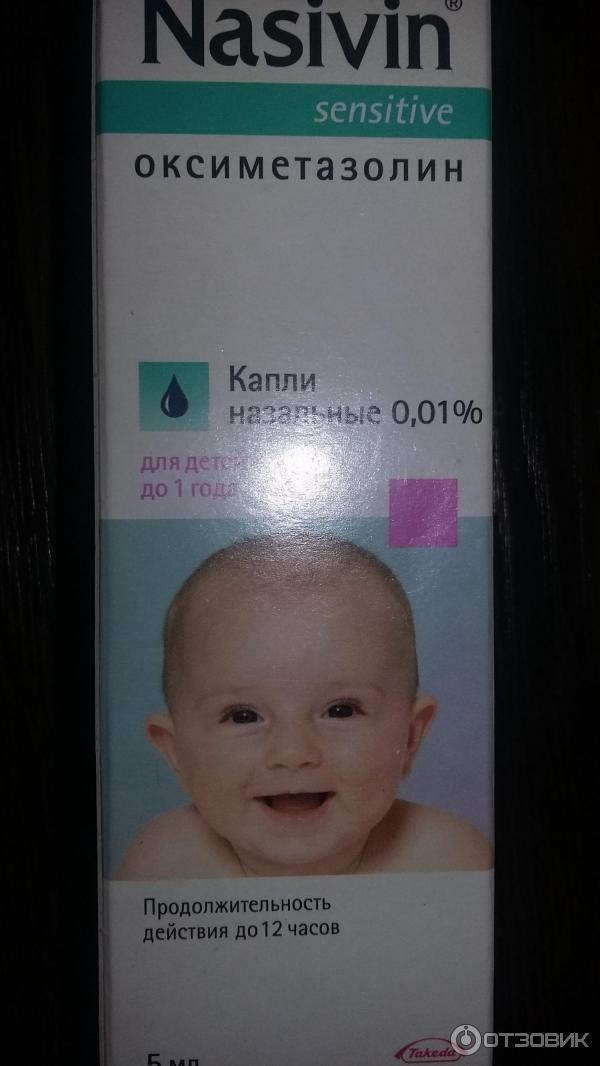 ”
”
NOTE: See Resources for Parents of HSPs for information on an independent online support group for parents of HSCs.
The Highly Sensitive Child: Author’s Note, 2014
End notes for the Highly Sensitive Child
>> Go here to purchase.
“I have a very sensitive child”
25,636
To parents
Such children are vulnerable, touchy, upset for a long time. They react emotionally to attitudes and even intonations of other people's voices. According to the observation of the American clinical psychologist Elaine Eyron, who has been studying the phenomenon of high sensitivity for a quarter of a century, these children are able to notice the slightest novelty of taste and any change in temperature. They startle at loud noises and cry if bright light hits their eyes.
And as they get older, they become more and more emotionally sensitive: they start crying quickly when their feelings are hurt, they become more anxious and may be so happy that they simply "can't bear it. "
"
Think about the reasons
Many of these manifestations cause anxiety or despair in their parents, they would like to see their children more resilient, balanced and adapted to the blows that life can inflict on them. “It is pointless and harmful to fight and re-educate a vulnerable child,” explains developmental psychologist Galina Burmenskaya*. - After all, high sensitivity is an innate property of temperament, a quality that is transmitted genetically and, as a rule, accompanies a person all his life.
But if an adult with hypersensitivity is already able to assess the depth of the wound inflicted on him, he knows that the pain will eventually stop, then the child does not have the necessary experience, and therefore he feels panic because of any disorder. Instead of giving adult arguments (“Yes, there are a lot of these bugs in the forest, people can’t fly through the air to make way for them ...”), show sympathy, help him express his feelings with words or tears (“Cry, I understand you, sometimes it hurts a lot when you cannot save the life of even such a small creature”).
A violent reaction to an insignificant occasion (like a lost button or a sharp voice from the father) may indicate the existence in the child's soul of a completely different, deeper suffering associated with problems at school or at home... Maybe this event reminded of a long-standing experience, which the child experienced at one time and was unable to express (for example, being a witness to a quarrel between parents).
Express your feelings
In any case, it is important to try to determine the root cause of his reactions and gradually strengthen him from within. What does "strengthen" mean? First of all, pay more attention to his emotions and encourage open expression of feelings through words or tears that help ease the pain. We often forget that tears give us emotional release, liberation.
“A child will endure the rudeness of a peer, a tactless remark of a teacher, the cooling of a friend more firmly if he has developed close, trusting relationships with his parents, if he is sure that at home he will be listened to without criticism and ridicule,” explains Galina Burmenskaya.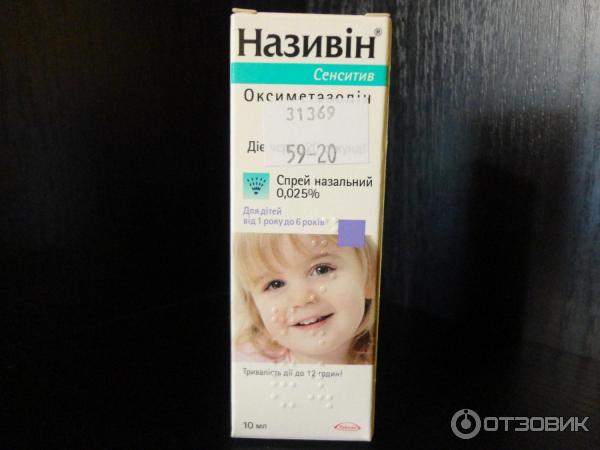 - If someone offended, ridiculed, humiliated your child, explain that if not he, but he was treated badly, then moral superiority is on his side and he should not be upset. Of course, this will not completely rid the child of bitter feelings, but will allow them to survive without dangerous accumulation and the formation of the position of the victim.
- If someone offended, ridiculed, humiliated your child, explain that if not he, but he was treated badly, then moral superiority is on his side and he should not be upset. Of course, this will not completely rid the child of bitter feelings, but will allow them to survive without dangerous accumulation and the formation of the position of the victim.
Empathize with others
And besides, it is important to remember that such children are sensitive not only to themselves, but also to other people, to their emotional state; they are capable of deep empathy, sympathy, they sincerely respond to the joy and pain of their neighbor. These qualities should be valued and strongly supported in your child. If you notice that he is too painful, overreacts to the suffering of others, try to direct his experiences into the mainstream of practical, effective help. Invite him to collect together with you a parcel of books for the orphanage or write a New Year's card to an elderly lonely neighbor on the porch.
Galina Burmenskaya reminds parents who are too worried that their mentally fragile child will not be able to achieve significant success in a career that requires pressure, toughness of character: “Success cannot be achieved at the cost of breaking the individual personality. And without spiritual sensitivity there can be neither love, nor friendship, nor sympathy, so valued by each of us.
"Their body as a whole is better equipped to notice and carefully analyze everything that concerns it."
Elaine Eyron is a clinical psychologist, author, and author of The Highly Sensitive Child. How to help our children thrive in this difficult world.”
Highly sensitive people are people who are born with the ability to notice more in their environment and think deeply about everything before acting than those who notice less and act quickly and impulsively. As a result, sensitive people - both children and adults - tend to be empathic, intelligent, intuitive and creative, caring and conscientious (they calculate the consequences of violations and therefore are not inclined to commit them). They are easily disabled by too much information arriving at the same time. They try to avoid it and therefore often come off as shy, shy, or nerdy. When they fail to avoid excessive stimuli, they give the impression of being "too sensitive" or "easily upset."
They are easily disabled by too much information arriving at the same time. They try to avoid it and therefore often come off as shy, shy, or nerdy. When they fail to avoid excessive stimuli, they give the impression of being "too sensitive" or "easily upset."
Even though HSPs notice more, it does not mean that they have better eyes, ears, smell or taste buds, although some do report at least one sense that they are particularly keen on. It's just that their brain processes information more thoroughly. However, this is not exclusively a brain process, as highly sensitive people, children or adults, have a higher rate of reflex reaction (the reaction that comes from the spinal cord), are more sensitive to pain, drugs or stimulants, they have a very reactive immune system, more often allergic reactions occur. In a sense, their body as a whole is better equipped to notice and carefully analyze everything that touches it.
Do you have a highly sensitive child?
Parent Questionnaire
Please answer each question as accurately as possible. Answer “true” (B) if it is true or applies to your child in one way or another, or applied to a certain period in the past. Answer “false” (N) if it is not about your child at all or is not entirely accurate.
Answer “true” (B) if it is true or applies to your child in one way or another, or applied to a certain period in the past. Answer “false” (N) if it is not about your child at all or is not entirely accurate.
- Easily frightened. C H
- Complains of scratchy clothes, seams in socks or tags that come into contact with his skin. H H
- Usually not happy with big surprises. B H
- He remembers restrained remarks better than severe punishment. B N
- Seems to be reading my mind. B N
- Uses difficult words for his age. B H
- Notices the slightest unfamiliar smell. B H
- Has a good sense of humor. B H
- Good intuition. B H
- Difficulty falling asleep after a stormy day. H H
- Does not handle big changes very well. H H
- Wants to change clothes if they are wet or covered in sand. B H
- Asks a lot of questions. B N
- Perfectionist. C N
- Notices other people's troubles.
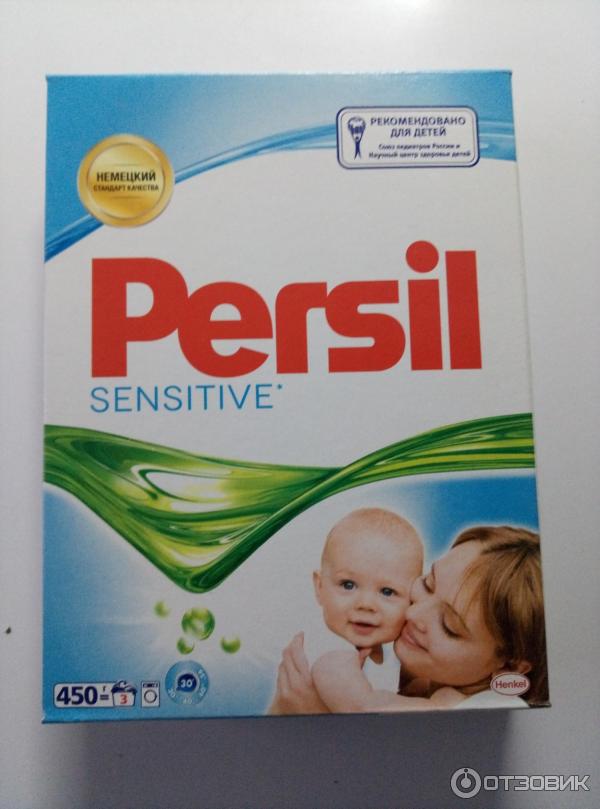 H H
H H - Prefers quiet play. H H
- Asks deep, thought-provoking questions. B H
- Very sensitive to pain. H H
- Worried in noisy places. B N
- Notices nuances (something has been moved, something has changed in the appearance of a person, etc.). B H
- Considers if it is safe before climbing high. H H
- Performs better when there are no strangers around. B N
- Feels deeply. B F
If you answered 13 or more questions “true”, your child is probably highly sensitive. However, no psychological test can be so accurate that you can determine how you should behave with your child based on its results. If just one or two of the signs are true for your child, but appear in an extremely high degree, you can also confidently call your child highly sensitive.
* Galina Burmenskaya, Developmental Psychologist, Associate Professor, Lomonosov Moscow State University M. V. Lomonosov, co-author (together with O.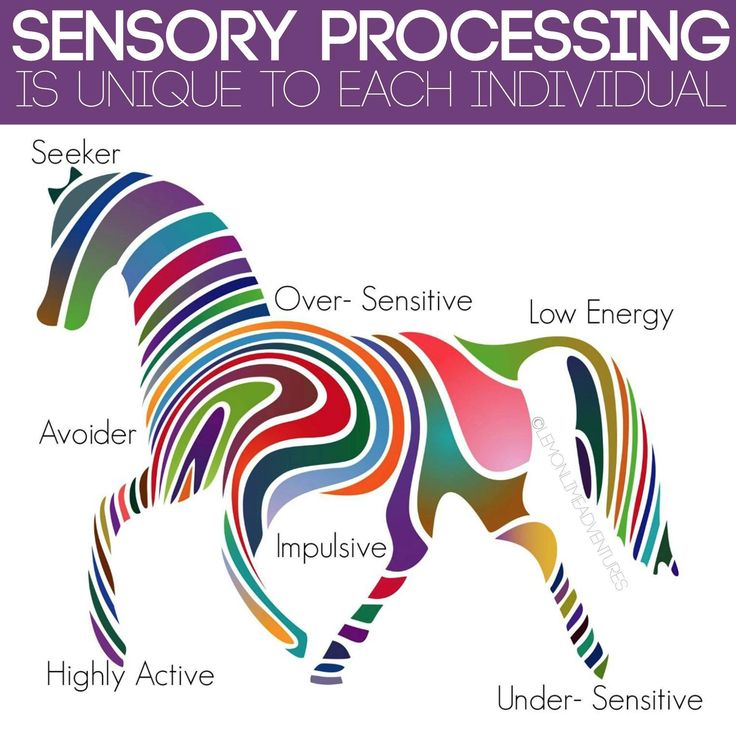 Karabanova and A. Leaders) of the book “Age-Psychological Approach in Counseling Children and Adolescents” (MPSI, 2007).
Karabanova and A. Leaders) of the book “Age-Psychological Approach in Counseling Children and Adolescents” (MPSI, 2007).
Text: Alla Anufrieva Photo source: Getty Images
New on the site
How to strengthen relationships: advice from the creator of "36 Questions to Fall in Love"
Who are the "new" fathers and are they all right?
Welcome to the dark abysses of the male brain!
5 books that will save you from the autumn blues
"I'm afraid to fall in love and I'm afraid to be alone"
5 foods to add to your diet after 40
How to survive a gloomy November: 6 useful tips - keep your spirits high
“We are leaves in the wind: nothing depends on us in a world conflict. How to accept it?
A very sensitive child: the secrets of communication
Sometimes children give out an over-emotional reaction to seemingly completely prosaic things. Dad joked unsuccessfully, mom didn’t allow me to eat ice cream before going to bed - a tantrum begins.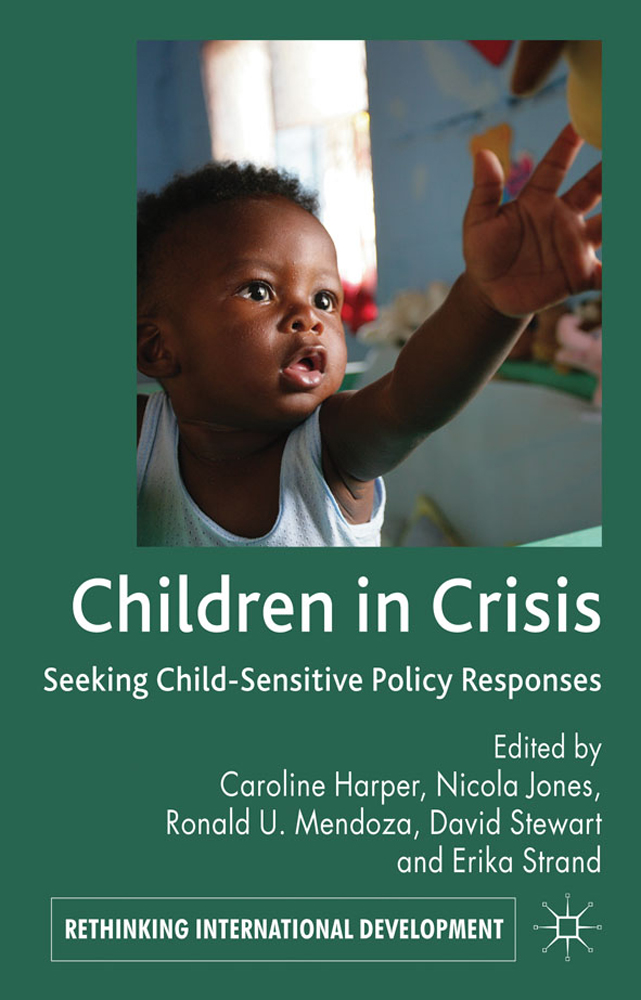 How to help a hypersensitive child navigate the world?
How to help a hypersensitive child navigate the world?
In fact, there are many advantages to being a very sensitive person. Here's how to help your child manage his deep feelings so that he learns to deal with them.
According to Jadzia Jagiellowicz, Ph.D., founder of the High Sensitivity Society, up to 33% of the population is considered "sensitive": they feel all stimuli more intensely, they can be overwhelmed by emotional and physical stimuli. Dr. Jagiellowicz says their brains are more receptive to incoming stimuli and more responsive to physiological cues — such as upset stomach or rapid breathing — than the brains of their less sensitive peers.
“There are many benefits to being a sensitive person. Sensitivity leads to empathy, self-awareness, and creativity,” says Laura Greenberg, a Canadian psychotherapist.
How to help sensitive children?
Check and connect
Sensitive children often feel that their emotional responses are misunderstood or rejected by parents and peers. “The most valuable thing you can do for children,” Greenberg says, “is just acknowledge their feelings.” Instead of trying to solve the problem (“Why do you suddenly think that no one likes you?”), be with them (“It looks like you had a hard time today when your friend refused to play with you”). By talking about what's going on, you're helping the children start the process of regulation.
“The most valuable thing you can do for children,” Greenberg says, “is just acknowledge their feelings.” Instead of trying to solve the problem (“Why do you suddenly think that no one likes you?”), be with them (“It looks like you had a hard time today when your friend refused to play with you”). By talking about what's going on, you're helping the children start the process of regulation.
As children get older, emotional connection with them continues to be critical. If tools are not available to manage strong feelings, there is a risk that the child will turn to negative behaviors and less healthy coping strategies. By staying attuned to the feelings of children, you will know if they need extra support as their world grows larger and more complex.
Identify and name feelings
Identifying and labeling feelings can help children regulate their emotional ups and downs. Teach your child to match feelings and words, and then discuss in what situations and how it can be used. If the child is closing in, having difficulty speaking, help him make a clearer connection between what happened and what he is experiencing. For example, he refuses to eat his sandwich - because you cut it into triangular pieces, and he would like rectangular ones. You can say: “I noticed that after I cut the sandwich, you got very upset and stopped talking. Is it because you wanted differently and are now disappointed?"
If the child is closing in, having difficulty speaking, help him make a clearer connection between what happened and what he is experiencing. For example, he refuses to eat his sandwich - because you cut it into triangular pieces, and he would like rectangular ones. You can say: “I noticed that after I cut the sandwich, you got very upset and stopped talking. Is it because you wanted differently and are now disappointed?"
For preschoolers, non-verbal ways of communicating may be appropriate: for example, draw faces together representing different emotions (happy, sad, scared) on cards and have the child simply point to the card that best matches their feelings. Or use a paper "traffic light" with "yes" and "no" signs so that you can quickly get an answer to a question. These little communication tricks can help bridge the gap between frustration and communication.
Take the time to prepare
Sensitive children are comforted by predictability and routine and prefer to know exactly what to expect.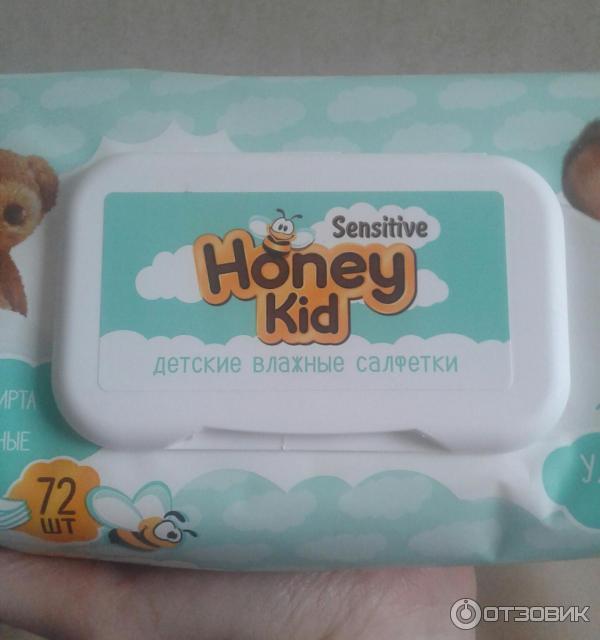 Before the first day of school, for example, try to introduce the child to the teacher and look around the class so that the environment at the right moment is already more familiar. Let the changes in life, regime, everyday moments also be gradual. Children who are more sensitive than their peers sometimes worry about what other people think of them - and worry even more. To combat this, Harris suggests that parents rehearse with their child in advance phrases that can be used to respond to various situations and act out these scenarios. For example, how to ask another child for a toy, or how to contact a teacher if you are thirsty.
Before the first day of school, for example, try to introduce the child to the teacher and look around the class so that the environment at the right moment is already more familiar. Let the changes in life, regime, everyday moments also be gradual. Children who are more sensitive than their peers sometimes worry about what other people think of them - and worry even more. To combat this, Harris suggests that parents rehearse with their child in advance phrases that can be used to respond to various situations and act out these scenarios. For example, how to ask another child for a toy, or how to contact a teacher if you are thirsty.
Creating boundaries and safe spaces
Since sensitive children take in more information from the environment and react more strongly to it, it is worth doing the prevention of overload. These can be quiet places to relax in an apartment (plaids, pillows, "houses"), specially created opportunities for relaxation after intense and stimulating activities.